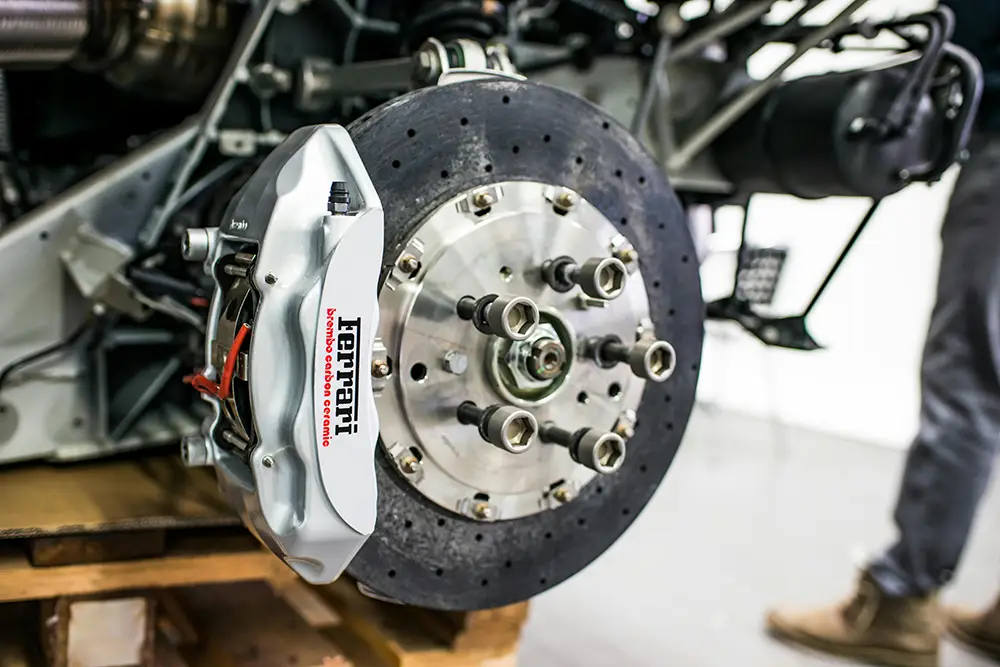If you’ve lived in Yorkshire for any time, you’ll know one thing: it rains—a lot. And while everyone’s learnt to live with soggy shoes and damp afternoons, the endless drizzle could quietly destroy something you rely on daily — your car’s brakes.
Most people don’t realise how much Yorkshire’s climate speeds up brake wear until an expensive repair bill is involved. Here’s how the constant wet and mud damage your braking system, how often you should get it checked and what you can do to keep things running safely through the stormiest seasons.
The Hidden Malady
Yorkshire’s constant rain and drizzle may be perfect for green fields and garden flowers, but they’re terrible news for braking systems. Water doesn’t simply flow off the roads—it seeps into your vehicle’s braking components to coat the pads and discs in a delicate film of water. This causes rust, corrosion, and, in the long run, the weakening your brake pads.
Recent UK Vehicle Safety Association studies indicate that vehicles in rainy zones like Northern England see their brake pad life shortened by as much as 30% compared to cars in dry sections of the UK. That means that rather than the typical 25,000 miles many expect to get out of brakes, you may get 17,500 miles here in Yorkshire.
Mud, Grit and Brake System
Mud is also a secret foe. When it rains heavily, Yorkshire’s village streets and back roads are coated in a treacherous combination of water and grit. Each time you drive through it, minute particles of grit blast upward onto your car’s underbody, collecting in and around your brakes.
When mud dries, it behaves like sandpaper. Brake pads must labour harder to grip the discs, grinding away faster and lowering overall braking performance. If you experience a judder when pressing the pedal or a subtle pull to one side, dirt and crud may be playing havoc with your brake balance. For more information on the brake system and more, visit onlinecarparts.co.uk
Evidence That Damage Is Already Occurring
The damage of rain effects tends to creep in slowly, yet your vehicle will typically give you some early warnings if you know where to look. You may experience a high-pitched squealing when you hit the brakes or sense a strange vibration in the floor mat. Sometimes, you will find that the vehicle takes a little longer to stop, especially when the roads are damp.
Additionally, visual checks can also be informative. If you notice orange rust on your brake discs or an accumulation of grimy residues near your wheels, it is time for a check-up. According to AUTODOC expert, ignoring these initial signs can result in expensive repairs in the future.
How Often Should You Check Your Brakes in Yorkshire?
Most drivers may get their brakes inspected yearly; it is better to be slightly over-cautious in a rainy county like Yorkshire. You are advised to get your brakes serviced every six months or every 8,000 miles, whichever is sooner.
Regular inspections can identify tiny problems, such as slight rust or pad wear, before more extensive—and considerably costlier—issues. Fast-bearing checks also cost significantly less than replacing a complete system.
Tips to Prolong Brake Life in Wet Conditions
Taking care of your brakes in Northern England’s challenging weather doesn’t need to be complicated. When you’ve driven in heavy rain or through muddy conditions, washing your car thoroughly, particularly near the wheels and undercarriage, can clear away the debris and water before they cause damage.
Driving style also plays a role. Smooth braking, keeping adequate distances and avoiding standing water in front of you whenever possible all contribute significantly to brake pad protection. According to ATD research, smooth and defensive motoring practices increase the life of brake pads by as much as 20%, even in hard-weather areas.
Effects of Short Trips on Your Brake System
Short commutes in town may appear harmless, but they are among the foremost causes of water-related brake wear. As the brakes fail to get hot enough on regular drives, any water or mud that gets in remains trapped longer, causing rust and corrosion to build up faster.
Planning the occasional longer drive helps warm your brakes, causing any water that may be sitting in them to evaporate. Cars with mainly shorter commutes will experience more significant premature brake pad wear, particularly in rainy seasons.
Why Yorkshire Drivers Must Stay Ahead
With Yorkshire’s climate unlikely to alter anytime shortly, keeping ahead of braking maintenance is a prudent initiative every driver can make. Wet and muddy roads will put pressure on your car’s key safety components. Being aware of the danger and acting sooner rather than later can cost you less money, less hassle and even life-threatening conditions on the road.
By watching for tell-tale indications of brake wear, practising prudent driving and listening to the recommendations of seasoned professionals, you can navigate the difficulties of the notoriously rainy area smoothly and safely.
